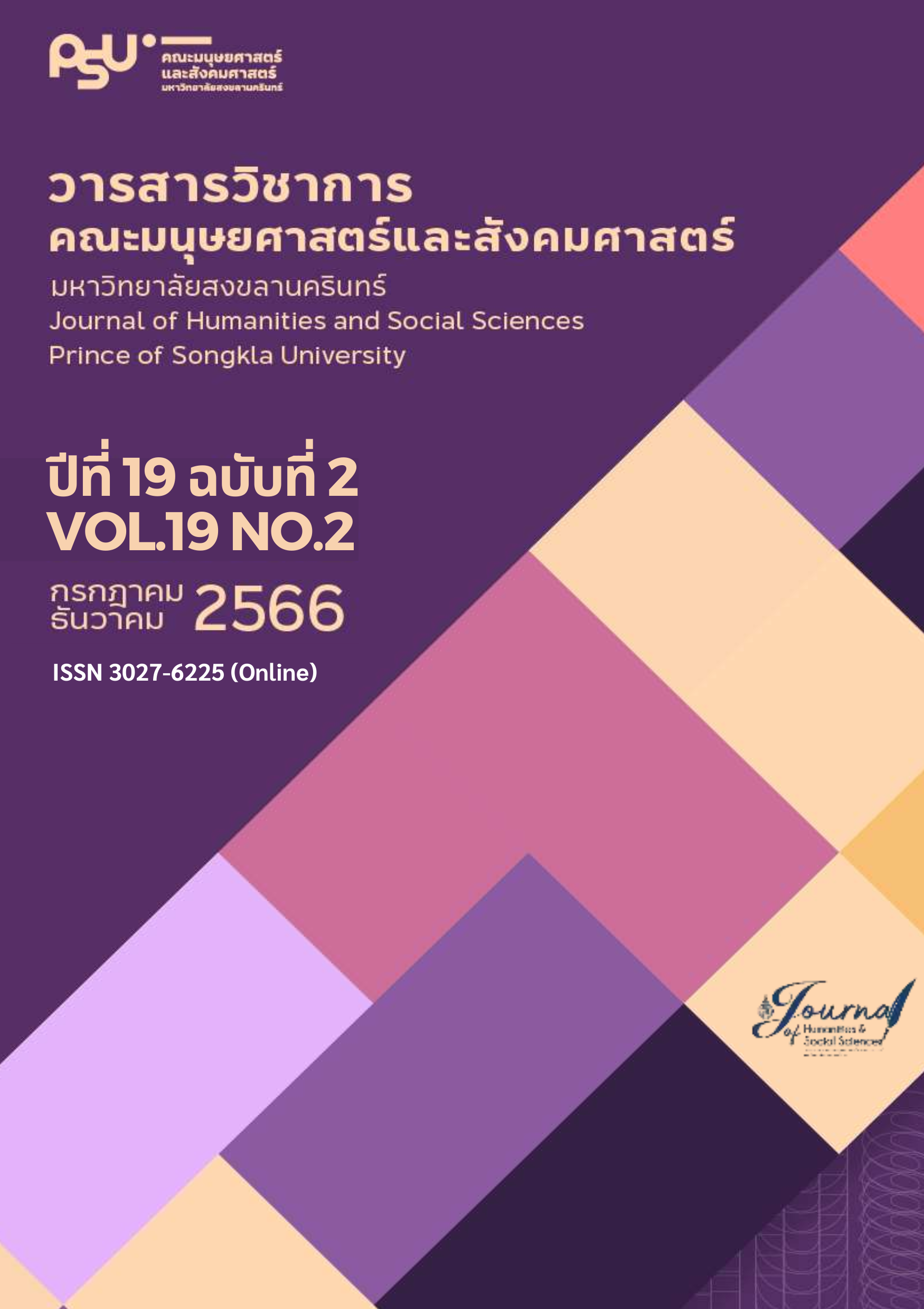“Ikiryou” in Murakami Haruki’s Killing Commendatore: Wounds and Memories from the War
Keywords:
Ikiryou, disembodied spirit, Murakami Haruki, the Second World WarAbstract
This article endeavors to analyze Murakami Haruki's "Killing Commendatore," with a specific focus on the concept of "Ikiryou" or "the disembodied spirit," a surreal element that has manifested in Japanese literature since ancient times. Notably, Murakami introduces this concept in his novel, marking a contemporary interpretation. Through the research, three dimensions of "Ikiryou" emerge: (1) It unveils characters' profound sentiments of attachment and resentment related to war; (2) "Ikiryou" serves as a reflection of the enduring impact of the Second World War, persisting as an integral part of Japanese societal fabric; (3) Murakami's portrayal of "Ikiryou" diverges from traditional representations in Japanese literature, as contemporary "Ikiryou" is no longer inherently malevolent. Consequently, addressing "Ikiryou" does not involve expulsion or evasion; rather, aiding these spirits in fulfilling their objectives signifies a path to redemption, aligning with the author's intent to emphasize that the younger generation should not disregard their historical legacy, particularly concerning wartime experiences.
References
เดือนเต็ม กฤษดาธานนท์. (2565). นวนิยายญี่ปุ่นร่วมสมัย.(พิมพ์ครั้งที่1). กรุงเทพฯ: สำนักพิมพ์จุฬาลงกรณ์มหาวิทยาลัย.
อรรถยา สุวรรณระดา. (2561). อิกิเรียว วิญญาณคนเป็นในวรรณกรรมญี่ปุ่น. (พิมพ์ครั้งที่1). กรุงเทพฯ: สำนักพิมพ์จุฬาลงกรณ์มหาวิทยาลัย.
อุชิดะ ยะซุฌิ安田康 (2018)「〈父なるもの〉の断絶と継承の狭間で : 村上春樹『騎士団長殺し』と、〈父殺し〉のその先」『広島大学近代文学試論』56 : 37 - 52
โคะยะมะ เทะท์ซุโร小山鉄郎 (2017)「「イデア」に対抗する「私」 : 「悪」を見つめ、「恐怖」を超える二十一世紀小説」『文學界』71 (5) : 70 - 90
โฌ คะโกะ 肖禾子 (2023).「『騎士団長殺し』論:「無」の肖像を描く「私」」『北海道大学大 学院文学.研究論集』22 : 73 – 87
สึดะ ยะซุโอะ 津田保夫 (2022).「村上春樹『色彩を持たない多崎つくると、彼の 巡礼の年』の 謎:なぜつくるはシロから虚偽のレープ告発をされたの か」『言語文化共同研究プロジェクト』2022 - 2021 : 33 – 42
นิวะ เค็นซุเกะ 丹羽健介 (2017).『文学界』、文藝春秋
ฮะยะฌิ ยะซุฌิ 林靖 (2021).「村上春樹『海辺のカフカ』における『雨月物語』の受容」『比較日本文化学研究』14 : 116 – 132
มุระกะมิ เค็นจิ 村上健司 (2005).『日本妖怪大辞典』、角川書店
มุระกะมิ ฮะรุกิ 村上春樹 (2017).『騎士団長殺し第1部 顕れるイデア編』、新潮社
มุระกะมิ ฮะรุกิ村上春樹 (2017).『騎士団長殺し第2部 遷ろうメタファー編』、 新潮社
มุระกะมิ ฮะรุกิ 村上春樹 (2022).『猫を棄てる 父親について語るとき』、文春文庫
โยะเนะมุระ มิยุกิ 米村みゆき(2021) .「〈論考〉ギミックとしての認知症--村上春樹『1Q84』『騎士団長殺し』.Murakami Haruki Review 2021」『京都大学学術情報リポジトリ』3 : 26 – 40
Downloads
Published
How to Cite
Issue
Section
License
Copyright (c) 2023 Journal of Humanities and Social Sciences Prince of Songkla University

This work is licensed under a Creative Commons Attribution-NonCommercial-NoDerivatives 4.0 International License.
บทความนี้ได้รับการตีพิมพ์เป็นของวารสารวิชาการคณะมนุษยศาสตร์และสังคมศาสตร์ คณะมนุษยศาสตร์และสังคมศาสตร์ มหาวิทยาลัยสงขลานครินทร์ วิทยาเขตปัตตานี






